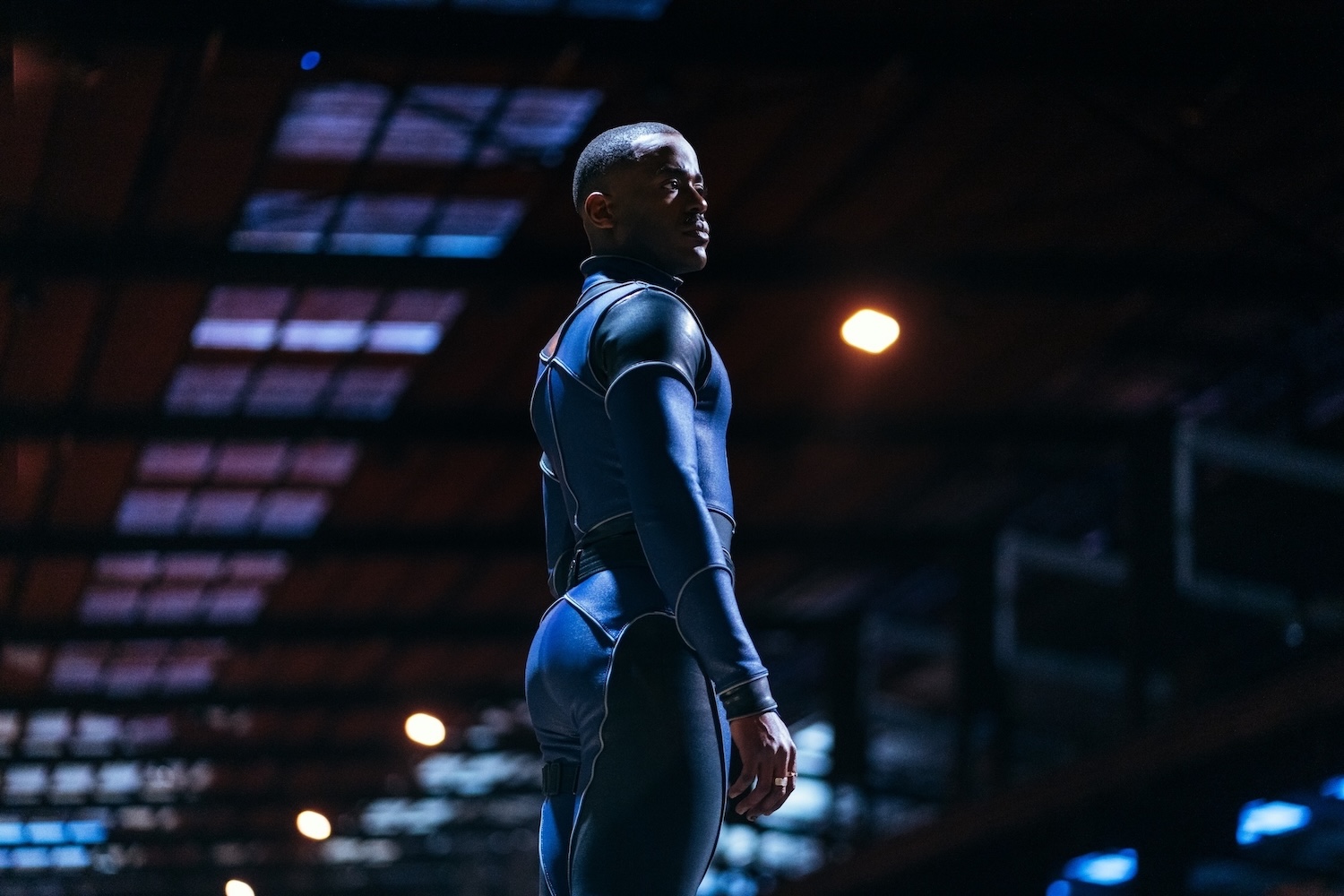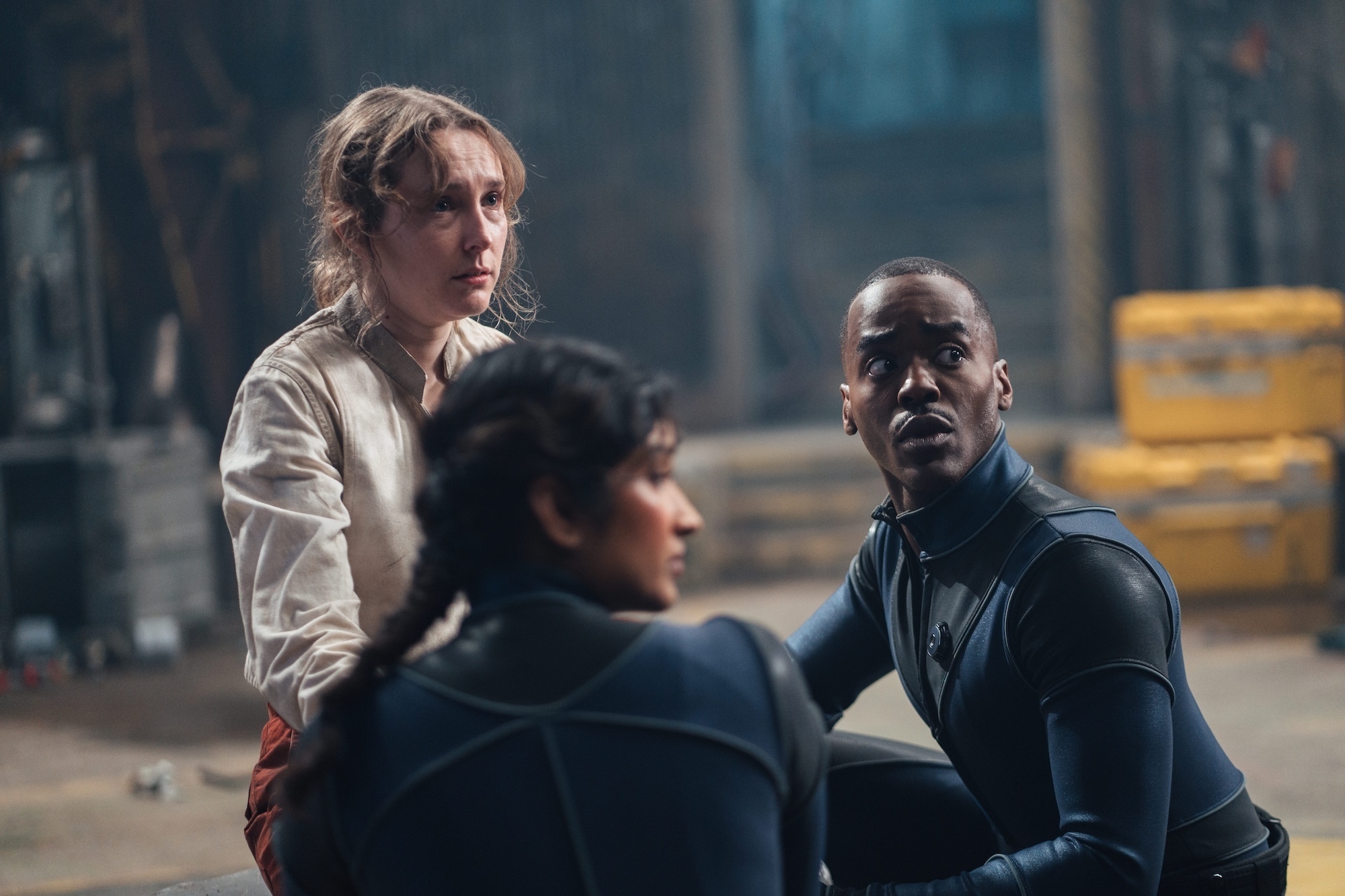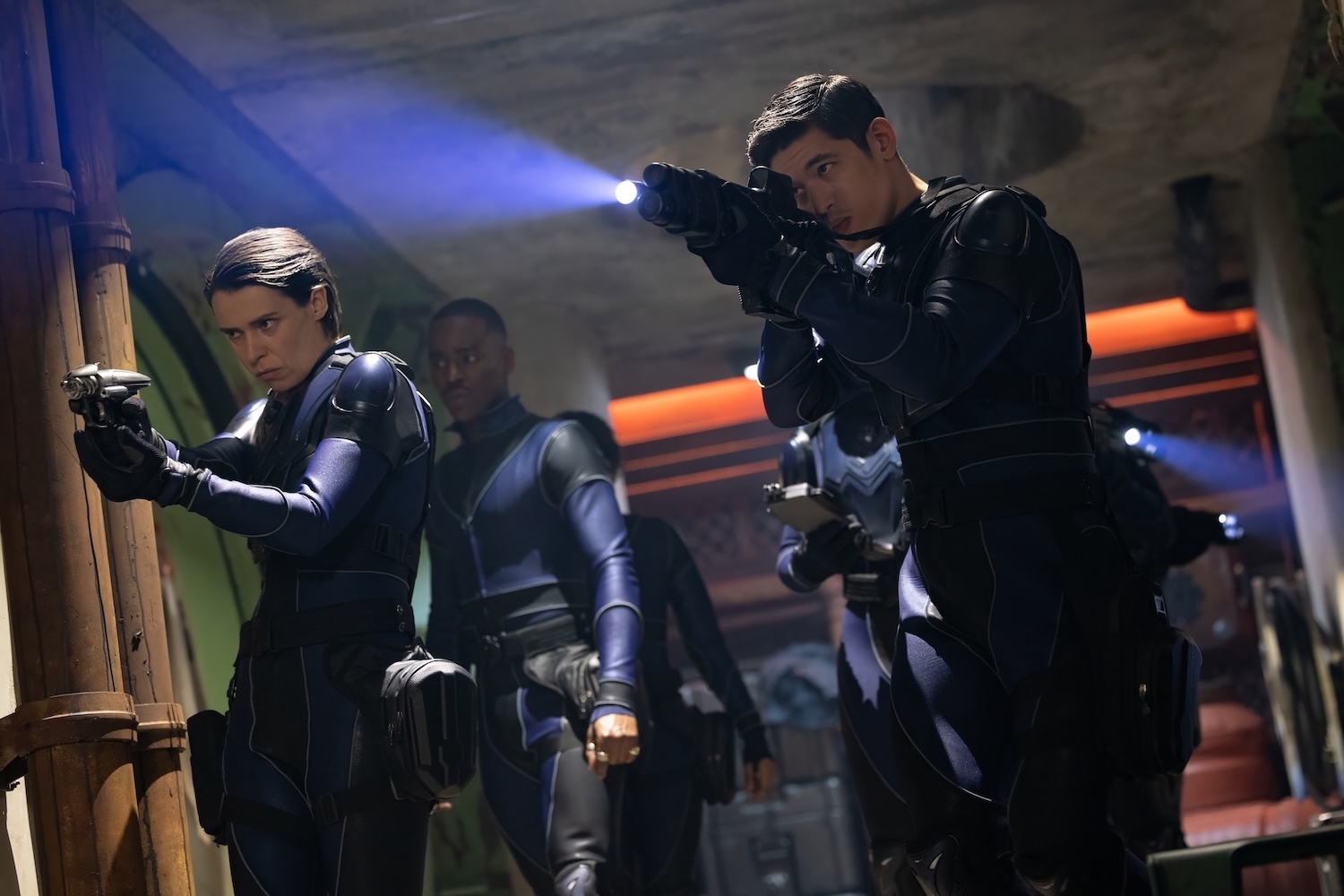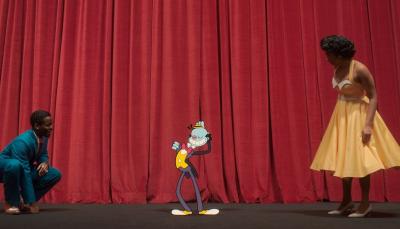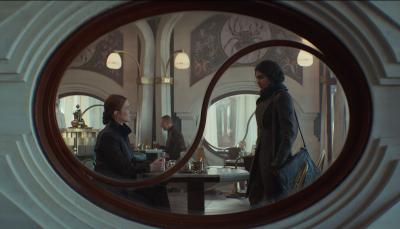"The Well" Is a Surprise Sequel to An All-Time Great 'Doctor Who' Episode
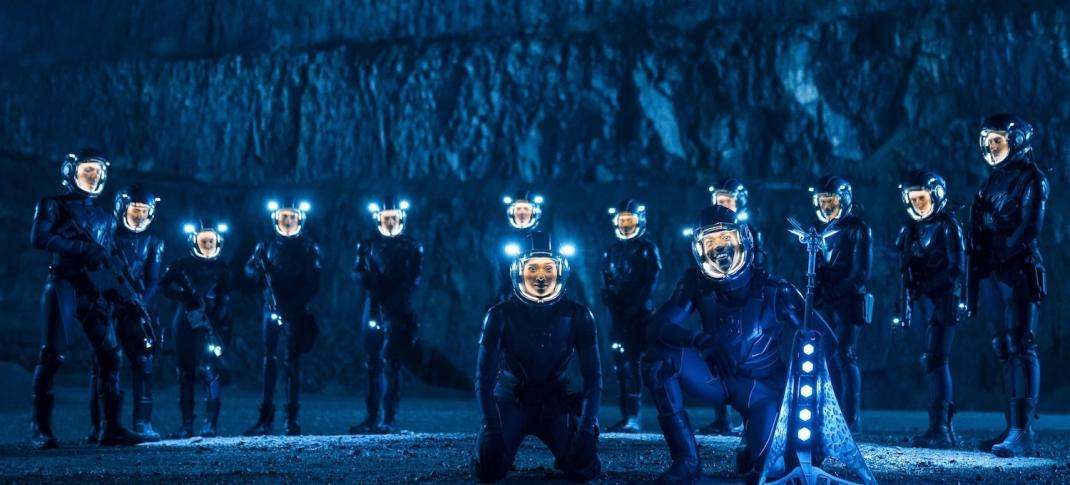
Ncuti Gatwa and Varada Sethu in "Doctor Who"
(Photo: James Pardon/BBC Studios/Disney/Bad Wolf)
When a franchise has been around as long as Doctor Who has, it's inevitable that it's going to revisit some of the same stories over time. Most often, that's reflected in repeated encounters with the Time Lord's most famous enemies: Daleks, Cybermen, and the Master. But sometimes, everyday adventures are more directly connected to those that have come before them.
Last season's "The Legend of Ruby Sunday"/"Empire of Death" two-parter was a stealth sequel to the classic 1975 Fourth Doctor episode, "The Pyramids of Mars." The 60th Anniversary installment, "The Giggle," was a follow-up to 1966's "The Celestial Toymaker," a First Doctor story that aired over 50 years ago. During the Steven Moffat era, "World Enough & Time" presented an alternate origin story for the 1966 serial that introduced the Mondasian Cybermen. And "The Zygon Invasion/The Zygon Inversion" picked up on a subplot that initially began in the 50th Anniversary episode "The Day of the Doctor."
But even among those adventures, "The Well" stands out. The hour is creepy enough in its own right; a base-under-siege-style episode that features mysterious deaths, an inexplicable unseen enemy, a dilapidated mining facility, and a hole that extends so far into the planet's center that not even light can reach it.
Yet, the decision to set this story on a planet that both the Doctor and the audience watching at home have been to before gives it an extra frisson of tension and horror; this story takes place on Midnight, the planet made famous by the Season 4 episode of the same name, which also featured one of Tenth Doctor David Tennant's all-time best performances.
At first, "The Well" seems like a fairly standard Doctor Who adventure to a deserted mining planet, albeit one 500,000 years in the future, where no one seems to remember that the human race ever existed, and the connection is not immediately apparent. There's an air that something terrible has happened; the rescue team that the Doctor and Belinda fall in with has been sent because they've lost contact with the people on base. That feeling is confirmed when they discover the piles of bodies. The workers have all been inexplicably killed in very different ways (half have been shot, while the rest have broken necks and other visible signs of serious bodily assault), and all the mirrors throughout the base are shattered.
There is a single survivor, a young deaf woman named Aliss (Rose Ayling-Ellis), desperate to get back home to her daughter. She struggles to explain what happened, but is mostly only able to convey that she was forced to kill her best friend when she attacked her. The group splits up to look for answers, with the Doctor pairing off with platoon leader Shaya Costallion (Caoilfhionn Dunne) and Belinda staying behind to treat Aliss's injuries alongside several other team members, most notably pushy Cassio (Christopher Chung) and kind Mo (Bethany Antonia).
Everyone who isn't Belinda is immediately suspicious of Aliss, even though it's clear she isn't strong enough to have broken the necks of so many people on her own. Things get worse when people start seeing strange things around her. Not images or shapes or even fully realized shadows, just something — enough to catch your attention out of the corner of your eye. Things take a turn for the threatening and dark, quickly, as the group becomes convinced there's something behind Aliss, something none of them can quite see.
But this thing, this unseen threat that brings madness and death in its wake, is something we (and the Doctor) have met before. Fifteen realizes that the thing, whatever it is, came from the Well, from the depths of Planet 6767, a world that 400,000 years ago went by a different name before its sun burned out and its diamond-encrusted surface was strip-mined.
The original "Midnight" took place within the confines of a broken-down futuristic shuttle, where the planet's hostile surface and radiation-heavy atmosphere meant the passengers were trapped in the vehicle. Paranoia runs rampant, and an unseen force begins manipulating them. As in "The Well," the creature controlling the passengers is never seen, although it is said to whisper to those it chooses to possess and speak through them.
Here, the unseen threat exists externally to the other characters, but chooses one as a host to "hide" behind, and anyone who crosses behind it will be killed. If you kill the host, the being somehow transfers to the person who did the killing. And in the meantime, its presence makes everyone paranoid and aggressive, their behavior often bordering on madness.
Granted, some of these rules and changes don't make a ton of sense, narratively. How the being we met in "Midnight" evolved into the creature in "The Well" is not something the show attempts to explain, nor how it ended up down the titular mine shaft when it seemed to be roaming the planet's surface quite freely hundreds of thousands of years ago. But, honestly, that's probably for the best, given that the monster is still at its most terrifying when we know the least about it. There are enough hints at the scope of its growth to convey how much power it likely wields here, and the moment where it seemingly talks to the Doctor (and reveals it knows his name!) is genuinely disturbing.
One of the things Russell T. Davies has always excelled at as a storyteller is giving even the smallest of secondary characters the feel of three-dimensional people with their own stories, whose lives just happen to intersect with the Doctor's for a brief period. It's impressive how hard Shaya's sacrifice manages to hit at episode's end, with its flashback to her childhood dash to save herself interspliced with her final run to save her comrades, and possibly the rest of the universe.
Or maybe it's just me who finds the thought of her jump and seemingly endless fall to her death particularly horrifying. (The hint that the Midnight creature might have made its way offworld somehow anyway is the sort of gotcha ending that makes everything before feel a bit weaker, so feel free to join me in ignoring that it happened at all.)
It's not entirely clear that making this particular episode a follow-up to "Midnight" really does all that much beyond amp up fans who have a fondness for the Tenth Doctor era. (And, it's true, Season 4 is pretty much nothing but bangers.) Did this hour add all that much we didn't know? Not really. Did it dilute the impact of that original episode? Maybe a little bit.
But, on its own merit, "The Well" is genuinely chilling, the sort of high-tension adventure that leans heavily into psychological terror and claustrophobic dread rather than relying on CGI monsters or complicated sets. It's a propulsive, disturbing hour of television, and that would have still been true even without the "Midnight" hook. That said, there's something fascinating in knowing that the Doctor's not the only ancient and dangerous thing out there, spending thousands of years amongst the stars.
New episodes of Doctor Who stream on Saturdays on Disney+ in the U.S. and BBC iPlayer in the U.K.

